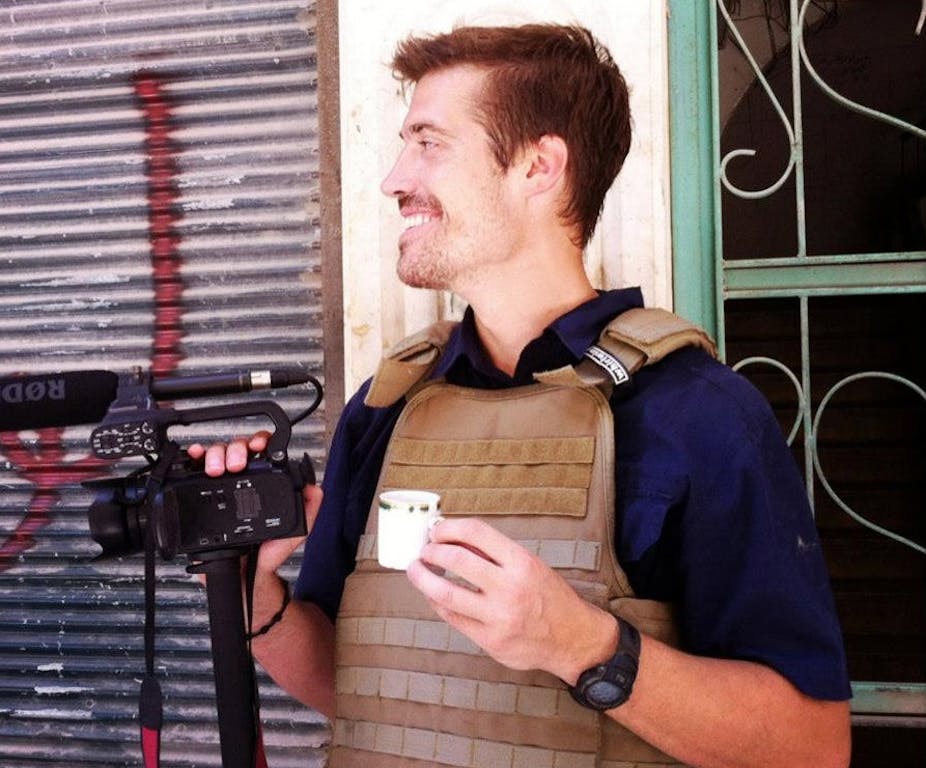The appalling death of journalist James Foley has highlighted once again the inherent dangers facing reporters covering conflicts around the world.
Foley, who worked for both US news site Global Post and the French news agency AFP, had previously been captured and detained for more than 40 days in 2011 whilst covering the Libyan conflict. He was released on that occasion, but went missing again in Syria in 2012.
According to figures from the International Federation of Journalists, the total of journalist and media staff killed so far in 2014 is 67. Since 1992 according to the Committee to Protect Journalists, 1,071 have been killed.
These deaths do not just occur under hostile regimes in war zones. The majority of journalists killed are local staff targeted because of their reporting of organised crime drugs and arms deals. The casualties are not confined to one or two areas of the world but extend to more than countries. Most of their murderers go free and unpunished.
Adrenaline but also commitment
Undoubtedly there is an excitement and glamour associated with the work of the front line correspondents. Wars can make great stories. For many journalists there is an element of addictiveness to the lifestyle, one that can bring intensification of emotion that brings as many low points as high ones.
But alongside the stress on excitement many journalists who cover conflicts refer to the social value of their work, to truth seeking, to bearing witness, and to being present at moments, or indeed the front row of history.
While the initial motivation maybe one of adventure, a way of keeping away from routine, this almost invariably changes to become a mission. This personal commitment is enhanced when journalists see themselves as witnesses to atrocities and injustices. The journalist/witness has to open the public’s eyes to the world’s brutalities.
But the desire to be present at historic moments necessarily means that there is an element of risk inherent in the occupation whether it is in gathering the story, or editing the material, or transmitting it back to their news organisation.
The desire to document has meant for example, that photojournalists, such as Foley, see their role not only to bring attention to the world of the human cost of conflict but also that reporting can have another role as the creation of evidence, work that would hold people accountable, and not allow the perpetrators or politicians to deny or say that they did not know this was happening.
Journalists covering conflict face the most severe conditions and demands. The affect on their physical and psychological welfare can be devastating.
Safety measures
The need for safety measures has become a major issue in war reporting and the pressure on media organisations to create a safety framework that will safeguard the lives of their employees has intensified. Some media companies do provide risk awareness training, social protection in the form of life insurance, free medical treatment and protection for freelance or part–time employees but many do not.
Journalists are increasingly being targeted by armies, terrorist and assassins, (in most cases) to prevent independent reporting and witnessing of events. The growth of social media has enabled protagonists in conflicts to manage their own propaganda without the need of the reporter to tell their story. The only value of a journalist in these situations is either as a bargaining tool or commodity for gaining ransom money or to communicate terror.
As AFP president, Emmanuel Hoog, poignantly remarked on James Foley: “Once again our profession has been shaken by a shameful and unacceptable act. Journalism was James Foley’s reason to live and it should never have been his reason to die.”

